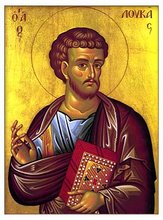Here's and
interesting piece by a physican concerning the ethics and practice of organ donation and the Church's call for the ethical harvest of organs. Dr. John B. Shea, MD, FRCP(C) writes:
Organs are obtained from an unconscious patient after he or she has been called “brain dead” using clinical and technologically acquired information, regarded as diagnostic. The public in general is not aware of the following serious criticisms of
this kind of organ harvesting.
The theory of brain death is highly controversial and can be used for utilitarian purposes.4 The Pontifical Academy of Sciences declared brain death to be “the true criterion for death” in 1985 and again in 1989. However, in February of 2005, Pope John Paul II called for more precise means of establishing that the donor is dead before vital organs are removed. Organ transplants, he continued, are acceptable only when they are conducted in a manner “so as to guarantee respect for life and for the human person.”5
The concept that whole brain death (irreversible loss of function of the cerebrum, cerebellum and brain stem) means the loss of integrated organic unity in a human being has been subjected to a powerful critique by neurologist Alan Shewmon.6 Some physicians question whether we can be sure the entire brain is really dead in patients declared dead in the U.S. by “whole brain,” or in the U.K. by “brain stem,” criteria.7
Neurological criteria are not sufficient for declaration of death when an intact cardio-respiratory system is functioning. These criteria test for the absence of some specific brain reflexes. Functions of the brain that are not considered are temperature control, blood pressure, cardiac rate and salt and water balance. When a patient is declared brain dead, these functions are not only still present, but also frequently active.
There is no consensus on diagnostic criteria for brain death. They are the subject of intense international debate. Various sets of neurological criteria for the diagnosis of brain death are used. A person could be diagnosed as brain dead if one set is used and not be diagnosed as brain dead if another is used.8,9,10,11
A diagnosis of death by neurological criteria is theory, not scientific fact. Also, irreversibility of neurological function is a prognosis, not a medically observable fact. There is also evidence of poor compliance with accepted guidelines of brain death.12
It's worth a read.



